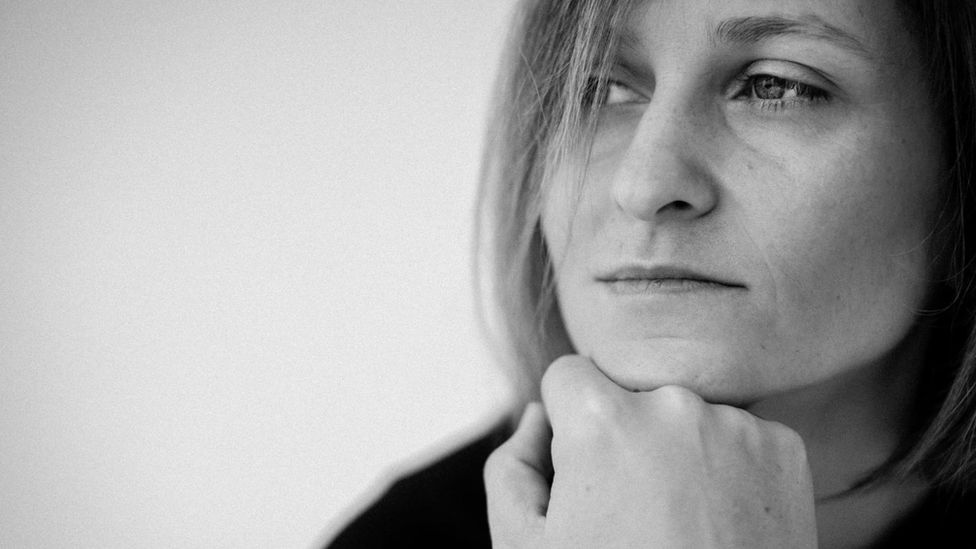By Marta Shokalo
Editor, BBC Ukrainian Service
I woke at 03:00 and checked the news, and realised my son and I had to leave Kyiv.
Tanks were bearing down on the city from the north, and from other directions. It was clear that the Russian military was attempting to encircle the city and would soon be in it.
Air raid warnings had told us there was a danger of attacks until 08:00. And 30 minutes after checking the news I heard distant explosions.
On Thursday many people were driving out of Kyiv to the west – towards the western city of Lviv and the Polish border.
I called my husband, who is away from home at present, and made a plan to drive east, to his parents’ village in the depths of the Ukrainian countryside. We made this decision partly for our 10-year-old son, who spent Thursday shaking with fear.
I started packing. How much do you take when you don’t know when you will return? I packed swimming costumes, in case we will still be in the country in summer. We set off at 07:30, soon after the lifting of the curfew, and drove east through Kyiv and out the other side.
The roads were empty in the direction I was travelling. Outside the city we passed Ukrainian tanks, heading in the opposite direction, towards Kyiv.
I didn’t know whether I would meet Russian forces, or run into a roadblock. I was really focused, thinking to myself, “We need to get there. We need to get there.”
Empty houses
I stopped periodically to check my phone and learned that street fighting was reported in Obolon, a northern suburb of Kyiv. Colleagues living there were going to attempt to leave.
These terrible things were happening, yet it was a beautiful sunny morning, with the first signs of spring in the countryside. It was completely surreal.
After a couple of hours we reached the village. I drove past the mulberry tree where last summer we were so happy gathering fruit. Today I was happy again, but in a completely different way – happy to have got out of Kyiv, happy to be alive, happy to have arrived with my son in a place of safety.
With my in-laws, I ate properly for the first time in 24 hours – a comforting bowl of borshch. The talk here is of which men have gone to fight with the territorial army, but it is very quiet, and I hope it will remain so.
I have an internet connection here and can work. If the electricity is cut, we have a generator.
My main priority is the safety of my BBC colleagues, some of whom are looking for places to stay outside Kyiv with friends and family. I have issued invitations to my parents-in-law’s village, where there are empty houses whose owners would be glad for them to be used.
We are off the main road, and I am hoping that Russian tanks will never come here.
When I will return to my home in Kyiv, and whether it will be standing when I get there, it is impossible to know. (BBC)








